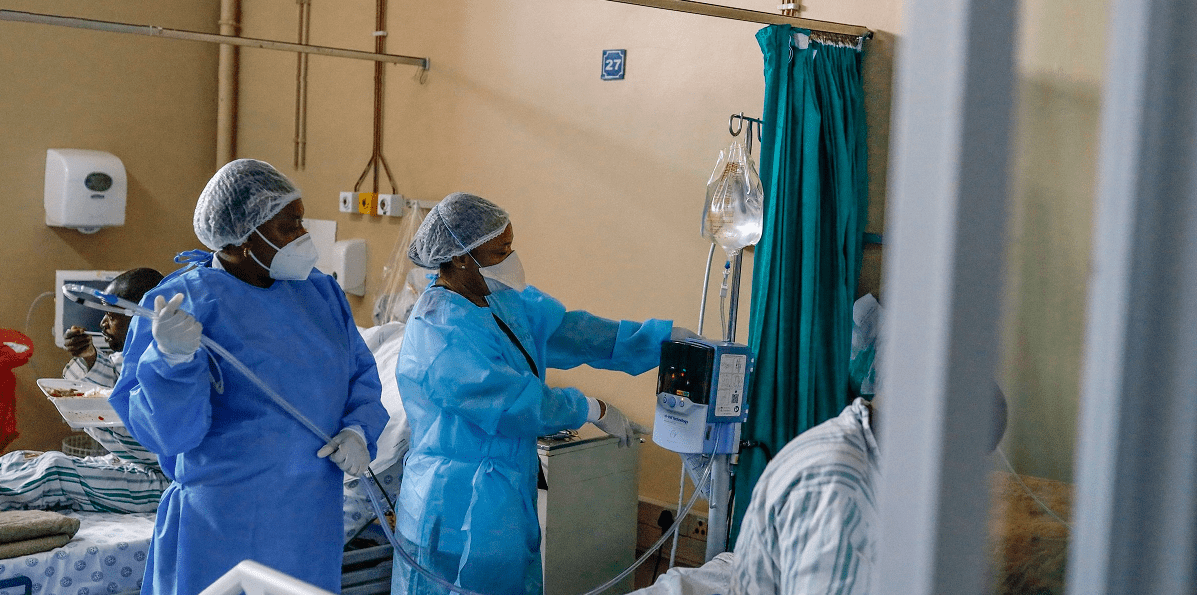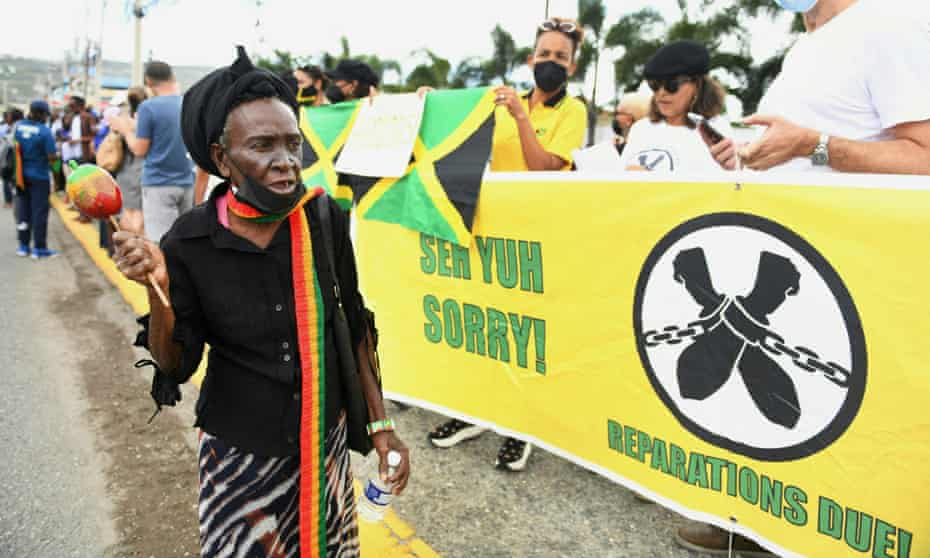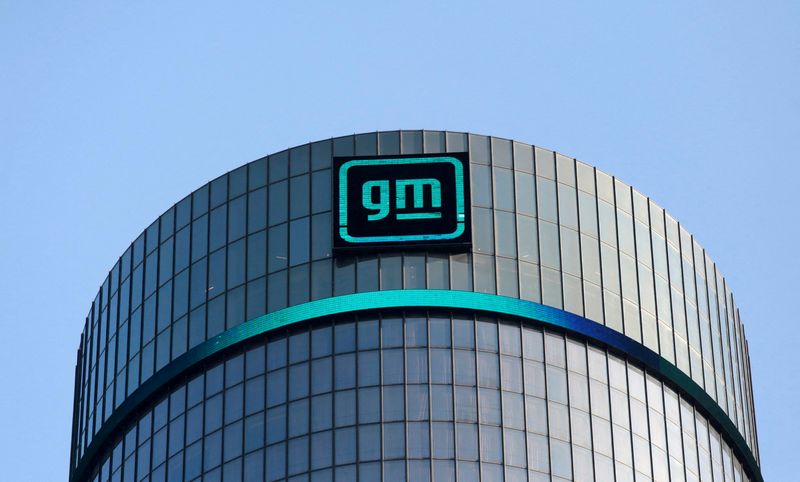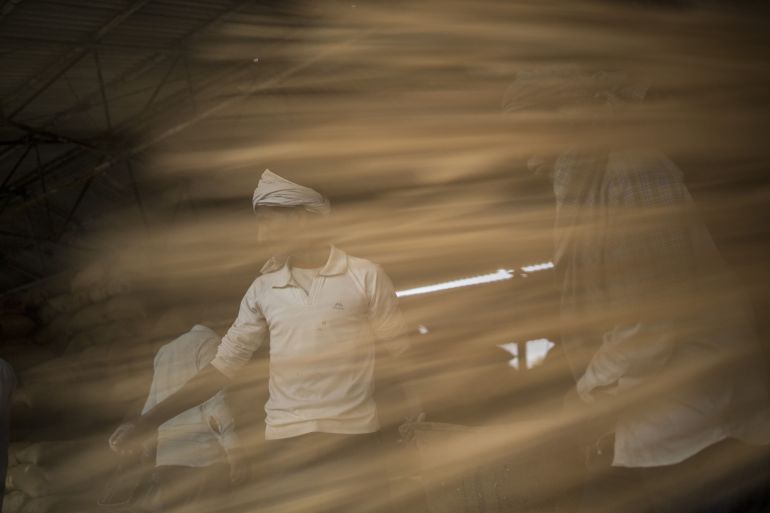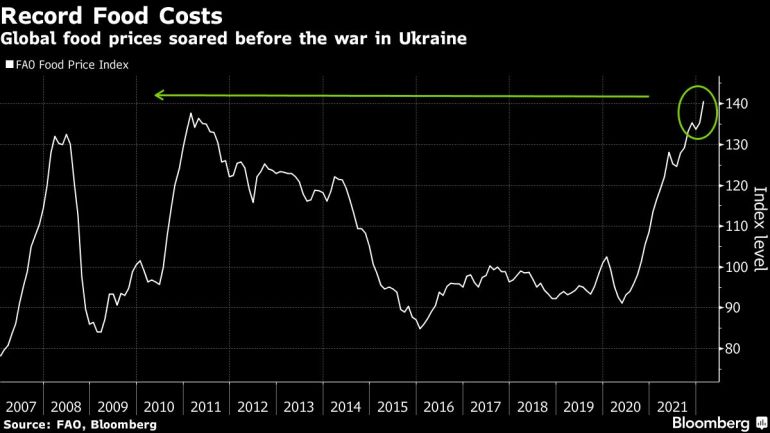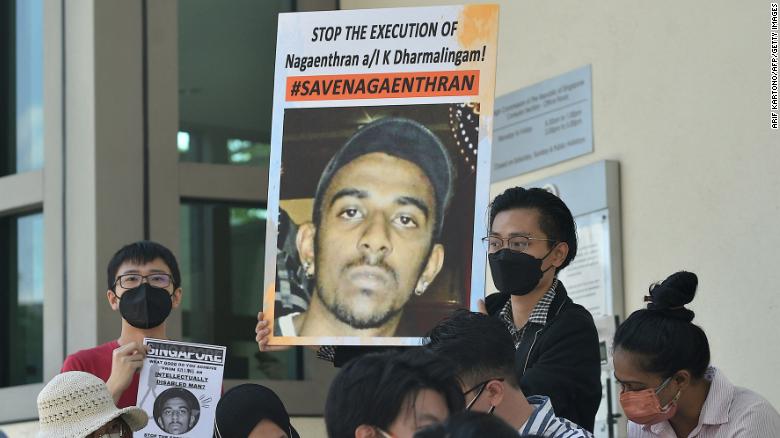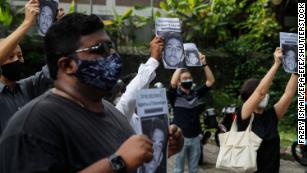Will Smith's win as best actor for his performance in "King Richard" is not what will go down in Oscars history.
Instead, everyone is talking about how he went onstage to slap presenter Chris Rock in the face after taking offense at a joke made by the latter, which referenced the hairstyle of his wife, Jada Pinkett Smith.
While presenting the award for best documentary, Rock began by cracking a few jokes about members of the audience, including Pinkett Smith.
Calling her "G.I. Jane" for her buzz cut — in reference to Demi Moore's role and hairdo in the 1997 film of the same name — the camera initially captured Smith laughing uncomfortably while Pinkett Smith reacted with an angry eye roll. She had revealed her battle with alopecia in 2018, a condition that causes hair loss.

Jada Pinkett Smith publicly opened up about her alopecia-related hair loss in 2018
Despite some disapproving groans from the crowd, Rock then continued, "That was a nice one!", which then prompted Smith to storm onstage and slap him.
Both the live audience and viewers worldwide, including Daily Show host Trevor Noah, were caught unawares, with some initially assuming that it was a planned stunt.
Smith then returned to his seat and shouted, "Keep my wife's name out of your f**ing mouth," which had everyone realize the actor was not joking.
The actor repeated himself from his seat, to which the visibly stunned Rock responded, "Wow, dude. It was a 'G.I. Jane' joke." Pausing briefly to compose himself, Rock then told the audience, "That was the greatest night in the history of television."
First onstage hit at the Oscars
Following Smith's slap, social media has been awash with tweets and memes commenting on the turn of events.
Many expressed empathy with Smith for wanting to protect his wife from a cruel joke, but most have underscored that resorting to violence isn't the way to go about it.
Without naming Smith, the Academy indirectly reacted to the exchange, saying in a tweet that it "does not condone violence of any form."
Upon confirmation from an Academy librarian, Vanity Fair has reported that this was likely the first occurrence of real violence onstage at an Oscar ceremony
.
Reactions then came hard and fast on this unscripted altercation, with actor Mark Hamill using the hashtag #UgliestOscarMoment_Ever. Smith's son, Jaden Smith, simply tweeted, "And That's How We Do It."
Scott Feinberg of the The Hollywood Reporter reported that a tearful Smith needed to be "pulled aside and comforted" by Denzel Washington and Tyler Perry during a commercial break following the incident.
Smith later picked up his first Oscar for playing the father of tennis legends Venus and Serena Williams in "King Richard." In his tearful award acceptance speech, he revealed Washington's words of advice to him: "At your highest moment, be careful; that's when the devil comes for you."
Smith referred to the chaotic incident, saying, "I look like the crazy father, just like they said about Richard Williams. But love will make you do crazy things," he added.
He also apologized to the Academy and his fellow nominees, without however apologizing to Rock. "I'm hoping the Academy invites me back," he added.

Smith's Oscar win has been clouded by the infamous slap
'Toxic masculinity'
However, Smith was criticized by many for exhibiting toxic masculinity for the assault.
Janai Nelson, president of the civil and human rights law organization, NAACP Legal Defense & Educational Fund, noted that "the way casual violence was normalized tonight by a collective national audience will have consequences that we can’t even fathom in the moment."
While the Los Angeles Police Department reported that Rock had declined to bring assault charges against Smith, others questioned the actor being able to get away with it — and receiving a standing ovation when he picked up his golden statuette a short time later.
Maria Shriver, ex-wife of actor and former governor of California Arnold Schwarzenegger, also condemned Smith's use of the word "love" in his speech.
Others have noted that Rock and Smith have had an ongoing feud for several years, with Rock already joking about the actor's wife at the 2016 Oscars. Actor and activist Sophia Bush also called out Rock's insensitivity in making a joke of Pinkett Smith's autoimmune disease, but nevertheless underscored that violence is still not the answer:
Some observers have also pointed out that Smith experienced domestic violence as a child.
In "Will," his autobiography published last November, Smith writes about how his father would hit his mother: "When I was nine years old, I watched my father punch my mother in the side of the head so hard that she collapsed," he wrote, adding that he sees himself as "a coward" for having "failed to stand up to my father" as a child, and that his entire career is an attempt to make up for his inaction at the time.
Opinion: Onstage altercation is a new low
for the Oscars
A slap onstage overshadows the 94th Academy Awards. Sunday's gala, which was supposed to be a turning point in the history of the US film awards, has instead brought the Oscars to their nadir, DW's Stefan Dege writes.

Actor Will Smith slapped presenter Chris Rock on Sunday
This year's Oscars could have been so enjoyable. Three awards, including best picture, went to the touching tragicomedy "Coda." Two Germans won Oscars. The presenters' show, ranging from audacious to emotional, along with its musical interludes, gave hope.
Then, along came Will Smith. By slapping the comedian Chris Rock in the face, the actor caused the night's scandal. O, Oscars, to what depths can you sink?

What a low point at the Oscars, says DW's Stefan Dege
Smith was reacting to an offensive joke about his wife's autoimmune disorder. He demystified the glitz and glamour show in one fell swoop, even before he received the Oscar for Best Actor for the biographical film "King Richard." For many, Oscars night was over, and Smith stole the show from of his colleagues.
It remains to be seen whether he will have to return his award or whether the academy will revoke it. Smith's outburst not only harmed himself, but even more so the Oscars. The most American of cinema ceremonies and in existence since 1929, the Academy Awards were just emerging from crisis. Now the 94th award ceremony in 2022 will go down in Hollywood history as the "slap-in-the-face-Oscars." It is not the hoped-for comeback!
In recent years, the Academy of Motion Pictures Arts and Sciences has faced the criticism that the Oscars are too white and too male. Too few female directors and screenwriters were nominated or received Oscars, as well as too few filmmakers of color. Facts and figures have shown that diversity was long a foreign concept in Hollywood. Audiences were noticeably turning away. That forced the academy to think things over.
Night of firsts
The results were visible at last night's ceremony: The trio of presenters — comedians Regina Hall, Amy Schumer and Wanda Sykes — were entertaining. The attention on "Coda," Sian Heder's story about a hearing girl who grows up in a deaf fishing family, generated empathy. Incidentally, it was also a first for a film from a streaming service to win the Oscar for best picture.
For many film fans, an Academy Award is still considered the most important cinema prize in the world. But the Oscars remain focused on the United States. World cinema is quite something else — more diverse, more realistic, more international. The innovative filmmakers on other continents and in other nations are not celebrated with awards at the Oscars, but with the Palme d'Or in Cannes or the Golden Lion in Venice.
Before he died in 2020, DW film editor Jochen Kürten called the Academy Awards "misinterpreted in artistic terms and hopelessly overrated." That may be why many viewers initially believed the slap to have been part of the show by Hollywood's dream factory. Instead, it was a low point in the history of the Oscars. Now, things can only get better.
This article was originally written in German.
Academy Awards producers hoping to make
show more immersive
 |
SO YOU CAN ACTUALLY FEEL THE SLAP
|


